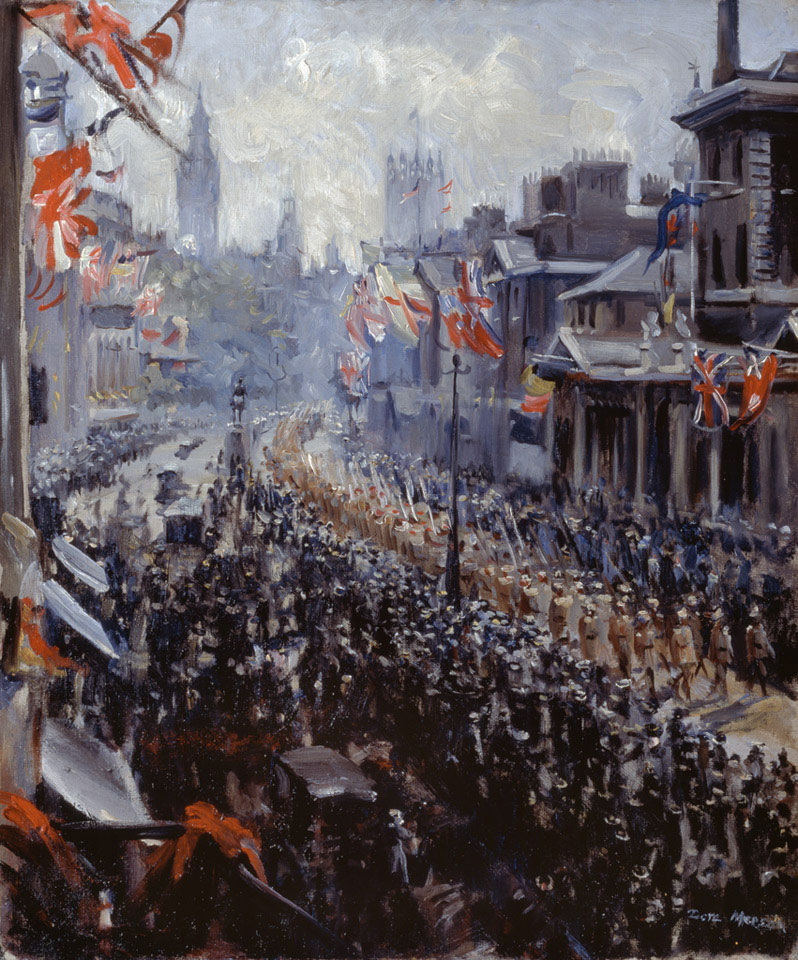
Online Collection
« Prev - 1 of 1 results - Next »
'Peace Celebrations Indian Troops Marching Down Whitehall', 1919
Oil on canvas by Dora Meeson (Coates, 1869-1955), 1919.
Although hostilities ceased with the Armistice on 11 November 1918, the First World War (1914-1918) did not end officially until the Treaty of Versailles was signed in June 1919. In Britain, Peace Day was celebrated on Saturday 19 July that year, with a Victory Parade in London as the main event. A camp for troops taking part in the Parade was set up in Kensington Gardens, while thousands of civilians flocked to the capital for the festivities. Nearly 15,000 servicemen took part in the Parade, led by Allied commanders such as Haig, Foch and Pershing.
In the painting Indian troops are shown marching up Whitehall (not down as in the title), just passing Horse Guards and moving towards the Mall and Trafalgar Square. In fact, the 1,800-strong contingent of Indian Army representatives was not present for the main parade. This was due to an outbreak of influenza on board ship on their way to England. Instead they paraded on Saturday 2 August and marched up Whitehall en route from Waterloo to Buckingham Palace.
A 'cenotaph' (or empty tomb) was designed by the architect, Sir Edwin Lutyens, for the marching troops to salute in Whitehall, to honour the dead. His design, strikingly minimalist but non-denominational, was represented by a temporary structure on the day. The permanent stone memorial was unveiled on Armistice Day 1920.
'The Morning Post' recorded that: 'Near the memorial there were moments of silence when the dead seemed very near, when one almost heard the passage of countless wings - were not the fallen gathering in their hosts to receive their comrades' salute and take their share in the triumph they had died to win?'
Celebrations and memorial services took place all over the country, but there was some criticism that this was inappropriately extravagant when so many ex-servicemen remained unemployed, and living in misery. In Manchester, demobilised soldiers marched to demand 'work not charity', and 'Honour the dead - remember the living'.
NAM Accession Number
NAM. 1951-03-15-1
Copyright/Ownership
National Army Museum, Out of Copyright
Location
National Army Museum, Study Collection
Object URL
https://collection.nam.ac.uk/detail.php?acc=1951-03-15-1

